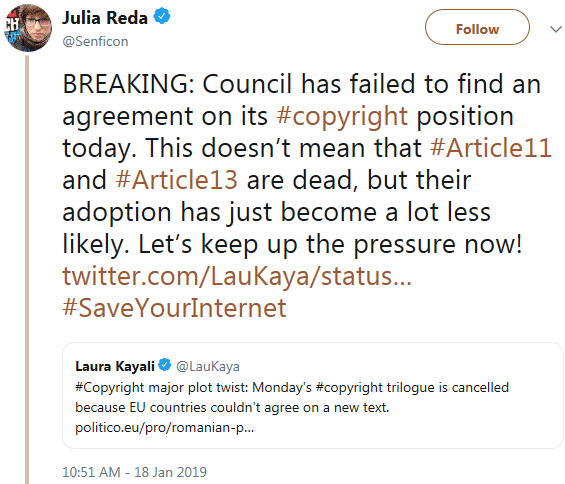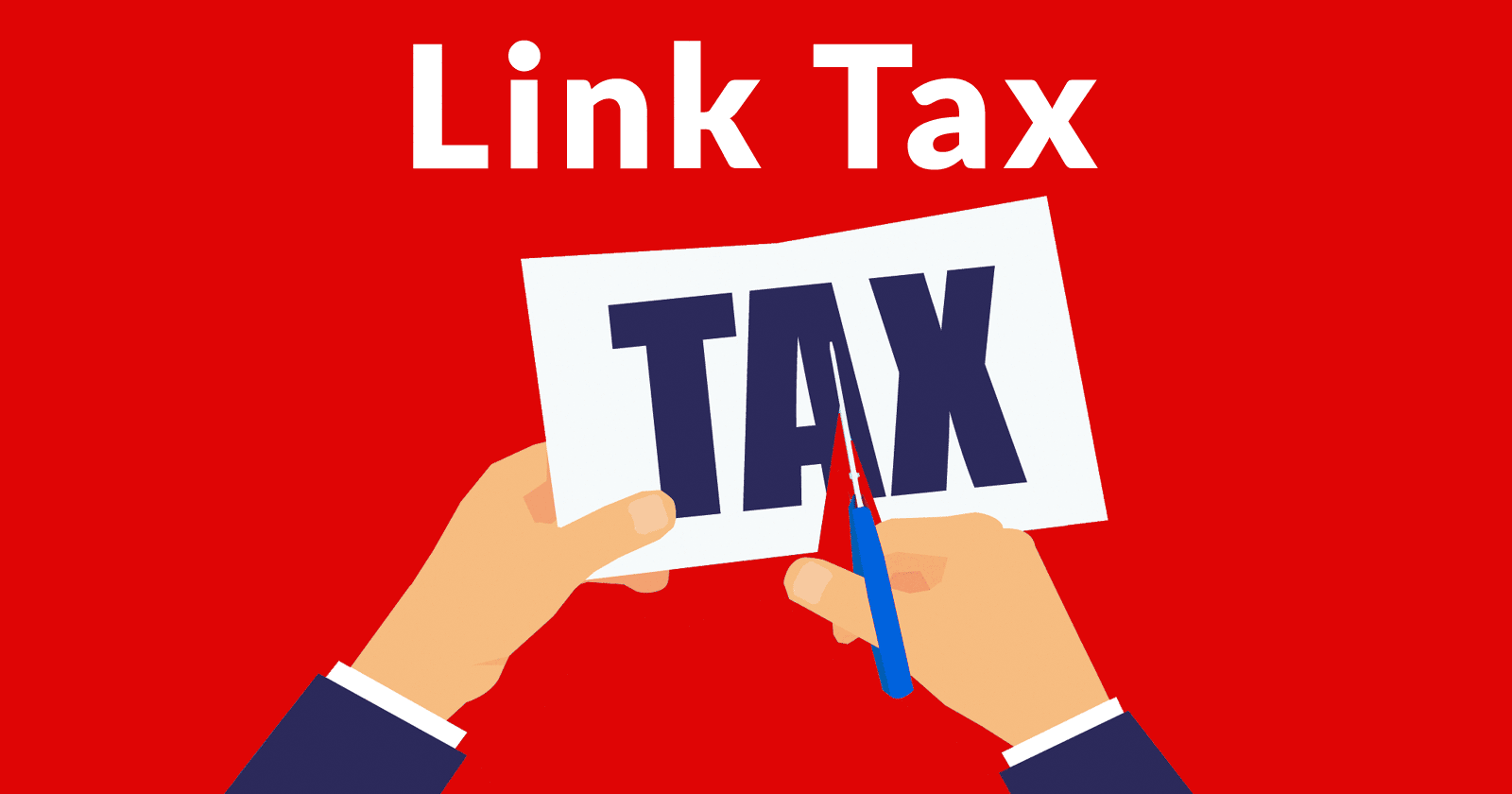Eleven EU countries voted against a text of a controversial EU copyright directive that was to be voted on in May 2019. The link tax is not defeated. But it makes it unlikely to be approved in May 2019, had all countries agreed to the wording.
This temporarily stops the so-called link tax and the heavy burden on web publishers represented by these proposals. This should be good news to the many online publishers and free speech activists.
Two parts of the directive, Article 11 (known as the link tax) and Article 13 (which imposes onerous burdens on small and medium sites) were the sticking points.
Julia Reda, a German member of the European Parliament, as well as a member of German political party know for digital freedom announced the news in a tweet and a blog post.

According to Julia Reda’s blog post:
“This surprising turn of events does not mean the end of Link Tax or censorship machines, but it does make an adoption of the copyright directive before the European elections in May less likely.”
Article 13 is opposed by organizations like the Electronic Frontier Foundation who call it a train wreck and warn of the dangers to small websites:
“On Article 13, the Council and the Parliament are struggling over whether small and medium-sized businesses should be excluded from the crushing demands and liability Article 13 would impose on Internet sites. This was one of the concessions that MEP Axel Voss offered in a last-minute attempt to get the Article’s provisions past Parliament.
But that’s not good enough for the article’s lobbyists, who believe that any site that allows users to put their content online should be treated as a pirate’s den—even if it’s a small European Internet site hoping to compete with deep-pocketed, US-based Big Tech companies.”
Google is on record as being firmly against the terms of Article 11 and 13. Google asserts that they are for copyright protections but argue that the current proposals go too far and will limit the free exchange of information, ultimately impacting the ability of small sites to earn revenue for their creative works.
Images by Shutterstock, Modified by Author
Screenshots by Author, Modified by Author




